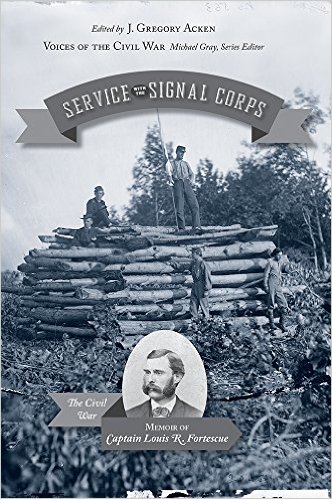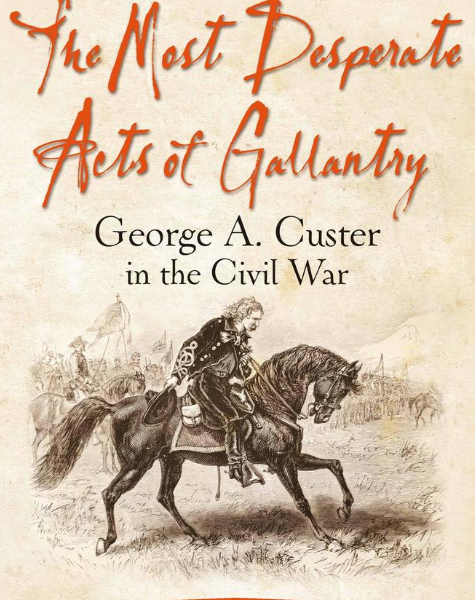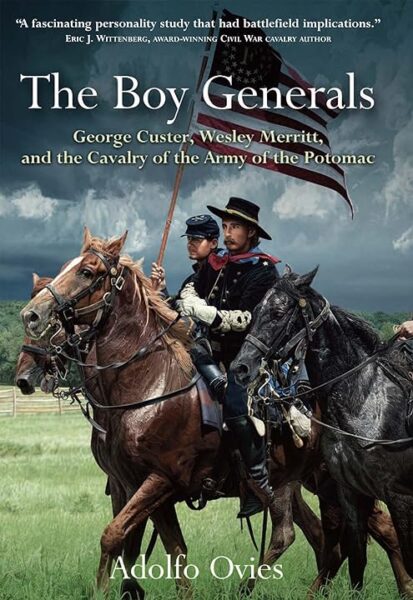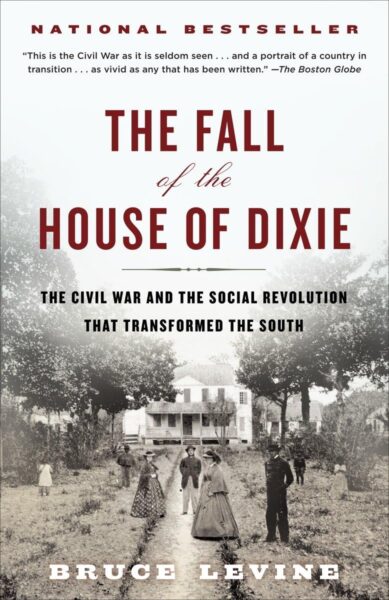As the subtitle of this volume indicates, David Tod, from Youngstown in northeastern Ohio, is best known for having governed his state during two tumultuous wartime years, 1862 and 1863, when the fate of the Union hung precariously in the balance and victory was far from assured. During his watch, rebel armies repeatedly invaded Union territory, including nearby Kentucky. In 1863, Confederate cavalry raiders under John Hunt Morgan tore through southern Ohio.
Tod had an extensive pre-war political career. A gifted stump speaker, he enjoyed the partisan rough-and-tumble. He twice was the Democratic nominee for governor, losing tight races in both 1844 and 1846. Tod was a hard money Jacksonian, but his state party was split: it had a soft money faction that favored a “government-regulated system of local banks” (38). Appointed by James K. Polk as minister to Brazil, Tod learned about devious American involvement in the horrors of the transatlantic slave trade. He failed to persuade Secretary of State James Buchanan that existing laws against this outrageous business needed stricter enforcement.
Tod campaigned for Stephen A. Douglas in 1860. Immediately following the outbreak of hostilities in April 1861, he became an outspoken champion of the Union war effort. His stance appealed to Republicans who wanted to highlight bipartisan support for the Union cause. He won the self-styled Union Party’s nomination for governor in 1861. Relying primarily on Republican votes, he defeated Hugh Jewett, the Democratic nominee, on a platform that called for military defeat of the Confederacy but promised not to interfere with slavery in the states where it already existed.
Tod’s home circumstances made it challenging for him to maintain conventional Democratic Party ties. Mahoning County was situated on the edge of the Western Reserve, and many of its New England-origin settlers tended to be Whigs or Free Soilers. His Congressional district was long represented by the conspicuous radical, Joshua Giddings, and by his likeminded successor, John Hutchins, Tod’s former law partner. Tod’s personal popularity enabled him to remain a Democrat before 1861, but his move into the Union Party was politically prudent.
Wartime governors had responsibility for raising and supplying troops. Tod took the lead in providing medical care for ill and injured soldiers following the ghastly bloodbath at Shiloh. Mindful that his old ally, Edwin Stanton, headed the War Department in Washington and counted on populous Ohio to shoulder a hefty share of the national burden, Tod did his best to spur enlistments without resorting to a draft. When Confederate armies lurked just across the river in September 1862, he gained popular favor by mobilizing a cohort of “squirrel hunters” to protect Cincinnati. Tod scuttled his previous reservations about emancipation when Union war aims expanded in late 1862. But in deference to traditional white racial prejudices, he was slow to raise Black troops (he shifted his position during 1863). The military stalemate in late 1862 damaged the Union Party’s prospects in Ohio, as increasingly peace-leaning Democrats captured fully fourteen of the state’s nineteen seats in the U.S. House.
Union military and political fortunes improved during 1863, and Tod hoped to win a second two-year term. But Treasury Secretary Salmon P. Chase, who schemed to supplant Abraham Lincoln, instead secured the Union Party nomination for John Brough, who had the good fortune to run against (and rout) the Confederate-tainted Peace Democrat, Clement L. Vallandigham. The Union Party’s appeal was boosted by the capture in July of Morgan, the Confederate raider. In an ironic twist one year later, Lincoln deposed Chase and offered his Cabinet post to Tod. Lincoln’s political logic was clear: the President had motive to add a popular War Democrat to the administration at a time when his re-election prospects had dimmed. But Tod, who may have suffered a stroke in 1860, feared that he was living on borrowed time and declined. The former hard money man may also have been nonplussed by the prospect of managing the huge paper money initiative that had helped to finance the Union war.
Tod was a catalyst in the industrial transformation of the Mahoning Valley. He pioneered coal mining in the region around his family farm, and he promoted the Pennsylvania & Ohio Canal and the Cleveland & Mahoning Railroad. His iron furnaces anticipated Youngstown’s emergence as a major steel-producing center. Though born to humble circumstances, Tod was wealthy capitalist by the time he died in 1868.
Lambert comes across as a booster for the city of Youngstown, which in the past half century has suffered more than its fair share of hardships with the collapse of domestic steel production. He wishes to call attention to its prominent early resident, who has in his judgment been unfairly forgotten. But Lambert manages to overlook much of the rich secondary literature that should have been foundational to this project. His command of antebellum political history is tenuous: he neglects classic studies by David M. Potter and Roy Franklin Nichols, and he appears unaware of key modern books by Stephen E. Maizlish, Michael F. Holt, Harry L. Watson, Michael E. Woods, William W. Freehling, and William E. Gienapp. His chapters on wartime politics could have benefited from consulting Adam I.P. Smith and work-in-progress by Jack Furniss. He relies instead on randomly selected guides. These shortcomings diminish confidence in an otherwise nicely written biography.
Daniel W. Crofts, Professor Emeritus of History at The College of New Jersey, was awarded the University of Virginia’s Bobbie and John Nau Book Prize in American Civil War Era History for Lincoln and the Politics of Slavery: The Other Thirteenth Amendment and the Struggle to Save the Union (University of North Carolina Press, 2016). His essay, “Sidney George Fisher and the Coming of the Civil War: How Southern Overreach Alarmed a Conservative Philadelphian,” appears in the December 2021 issue of The Journal of the Civil War Era.





